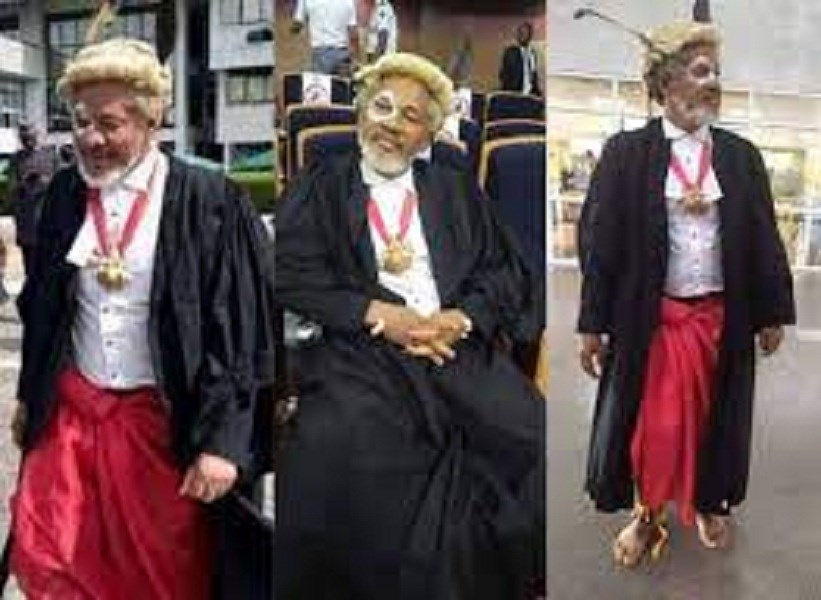A Lagos-based human rights lawyer, Malcolm Omirhobo, caused drama and mixed reactions at the Supreme Court in Abuja on Thursday, June 23, 2022, as he appeared in full African traditional religion attire for the worshippers of ‘Olokun’, the god of rivers in the courtroom.
According to media reports, the lawyer said he dressed to court in that manner as a way of exercising his fundamental human rights following the judgment of the Supreme Court that allowed every Nigerian to express their way of worship and the use of hijab in schools and public places.
Omirhobo arrived at the court at about 9:05a.m, and created a scene in the courtroom when other lawyers who had already seated were surprised to see him robed in African traditional religious attire.
The lawyer, who gained entry into the court barefooted with feathers attached to his wig, was also wearing a gourd on his neck laced with cowries and a red wrapper tied around his waist.
Omirhobo, who addressed journalists, said, “I am very grateful to the Supreme Court. Just last week Friday, they made a very resounding decision that promotes section 38 of the constitution. That is our right to freedom of thought, conscience and religion.
“That we are free to express our way of worship in our schools and in our courts. That decision was reached on Friday and that has encouraged me.
“I am a traditionalist and this is the way I worship. Based on the decision of the Supreme Court, this is how I will be dressing henceforth to court because I am a strong adherent of ‘Olokun’, the god of rivers.”
Omoirhobo said the implication of the judgment was that every Nigerian including doctors, police, military, students and journalists can now wear their apparel of worship to public places.
He added that he was not against the judgment rather he was happy with the decision because it strengthened and enriched the rights of all Nigerians as stipulated in the 1999 constitution of the Federal Republic of Nigeria as amended.



